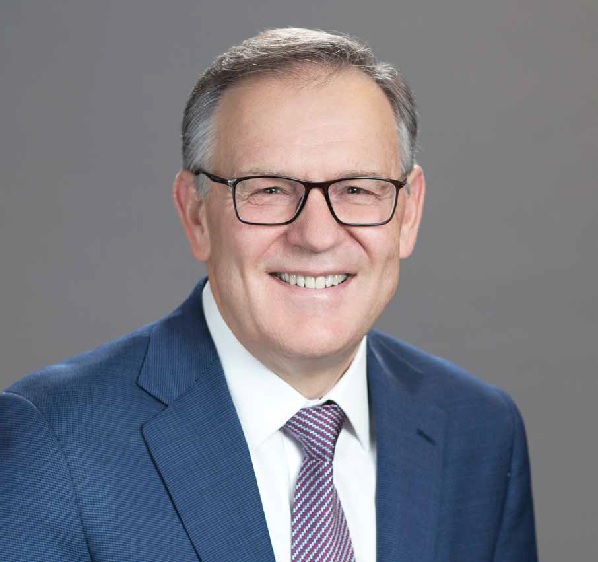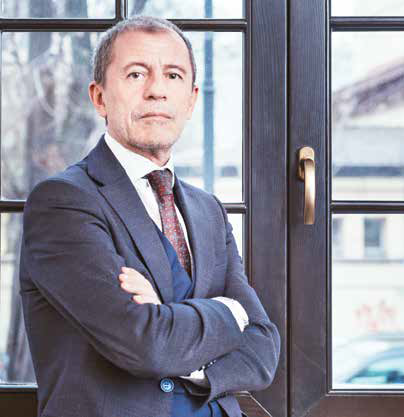A career in gambling started back in 1995 with the appointment to the South African Lotteries and Gambling Board which was set up to advise Nelson Mandela Government on the legalisation of gambling in the country.
➤ How did you start your career in the gambling industry?
Following the election of the Nelson Mandela government in 1994, I was asked to become the economic advisor to one of the South African provincial governments, Mpumalanga. In this capacity I was nominated to serve on the South African Lotteries and Gambling Board. My role was to advise the new government on the legalisation of gambling and establishing an appropriate regulatory framework for South Africa.
I didn’t know much if anything about gambling at the time, but I could see that gambling had the potential to contribute significantly to the economic development of South Africa. By being a member of this Board I was able to travel to various gambling jurisdictions around the world, including the USA, Australia and Europe, to observe the various approaches adopted in these jurisdictions in regulating different forms of gambling. This enabled me to spearhead the introduction of the first legislative and regulatory framework in South Africa allowing for large scale terrestrial casinos, bingo, AWP machines, etc. Later, with the advent of online gaming, I moved to the Channel Islands where I became involved in the regulation of online gambling, which I did for fourteen years. I then took a position with the University of Nevada Las Vegas to establish the first international center for the study and teaching of gaming regulation.
➤ Is gambling legislation better now than when you have started?
I certainly think so, specifically, in the area of online gambling, which was in its infancy when I became involved in gambling. At the time, Australia was the only jurisdiction in the world with a reasonably well-developed regulatory framework for gambling online. Unfortunately, that framework was never implemented due to the federal moratorium that was placed on online gambling in the late 1990’s. That didn’t stop other jurisdictions in and around Europe from taking the best parts from the Australian model and implementing them in the European context in the early 2000’s. At that stage, there were very few European jurisdictions that had actively legislated for online gambling.
As online gaming grew throughout Europe, regulation at the point of consumption was spearheaded by a number of jurisdictions, notably the UK, Denmark, Italy, France and Spain. With the help of the European Commission’s regulatory expert group and the work of the Gaming Regulator European Forum (GREF), new gambling jurisdictions were able learn from those who had gone before them. Therefore, early adopters of online gambling legislation were able to pass on best regulatory practices to new jurisdictions, resulting in Europe being a leading region when it comes to regulating online gambling today.

➤ Do you think online gambling will replace land-based?
As is the case with most businesses today, the gaming industry is already using both the off and online channels to get their products to the consumer. I am not convinced that these two channels to market necessarily compete with one another. In fact, there is evidence that these two channels might complement each other and in some jurisdictions the introduction of regulated online gambling has led to growth in the offline industry.
➤ What should land-based casino owners do in order to attract millennials?
There is no simple answer to this question. Although research strongly suggests that millennials favour games where they can improve their skills, the answer to the question of how to attract millennials is much more complex than just introducing gaming machines with skill-based components. The gaming manufacturing industry is no doubt very capable of producing games with any combination of chance and/or skill that would comply with regulatory requirements. The question is what is the right ratio of chance vs skill and, most importantly, what does the ideal environment look like where these games are being offered to millennials?
Personally, I think gaming operators may need to go beyond focusing on the device and also consider the way in which new generations play and socialise. Early indications suggest that the casino floor of the future may look very different from what it looks like today. It may have to include a mixture of off and online devices, skill and non-skill games, virtual reality games, betting on eSport competitions and access to nightclub entertainment. Casino operators will need to research and develop their understanding of what the gaming floor of the future should look like and offer.

➤ How did you start with BMM?
I was introduced to BMM as a young gaming regulator around 1994. I got to the know the original owners of BMM and learned a lot from them. They introduced me to Martin Storm in 2005 when he acquired the business. I came to know and respect Martin for the way he had grown the business into a highly respected international company. I had never seen myself getting involved in the operating or manufacturing sides of the gaming business, so when I decided to leave the University of Nevada Las Vegas at the end of last year BMM was an obvious consideration. Being an independent testing lab, the services that BMM provides to its clients are in many respects supportive of the work of gaming regulators.
➤ What does BMM mean to you?
In order for BMM to be successful as an independent testing lab, we take our relationship with governments and regulators very seriously. Looking back at the history of BMM, it has been doing exactly that since 1981. BMM has been working closely with governments around the world to understand their requirements and to provide them with independent advice and support. In fact, BMM is a trusted advisor to governments and regulators around the world and has been very successful in that role.
In my role as SVP Government Relations of BMM, I hope to extend and develop these relationships of trust further, in both existing and new gaming jurisdictions around the world. I will be providing independent advice, training for governments and information to facilitate regulatory best practices around the world.

➤ What is BMM’s position today?
BMM is the longest established and most experienced independent gaming certification lab in the world, providing professional technical and regulatory compliance services to the gaming industry. BMM is a systems-expert company that has consulted on and tested many of the largest gaming networks and systems for the last 37 years. The company authored the first set of independent gaming standards in 1992 and the first set of online gaming standards in 2001.
Today, BMM employs some 350 people in 14 global locations with 12 test labs serving over 450 jurisdictions worldwide. BMM’s world headquarters are in Las Vegas with offices in Mexico City (Mexico), Lima (Peru), Melbourne and Sydney (Australia), Singapore, Macau, Moncton (Canada), Buenos Aires (Argentina), Barcelona (Spain), Vienna (Austria), Bologna (Italy), Midrand (South Africa) and Bucharest (Romania).
➤ Future plans for you and for BMM?
Of all the markets mentioned above, Europe has proven to be of particular interest for BMM, with the company already providing testing for online, land-based and sports betting products in a number of European jurisdictions.
To help better service its European business, BMM has strengthened our executive leadership and technical capabilities in Europe with a view to further expand throughout Europe. In addition, South America has been another focus area for BMM with the company delivering games and systems certifications for both land-based and online gaming in many countries including Peru, Argentina, Columbia, Panama, Bolivia and Chile.
BMM’s business in North America, Australia, Asia and Africa continue to lead the market. Storm’s vision of BMM being not only the best test lab in the world, but the biggest too, is closer than ever.

















